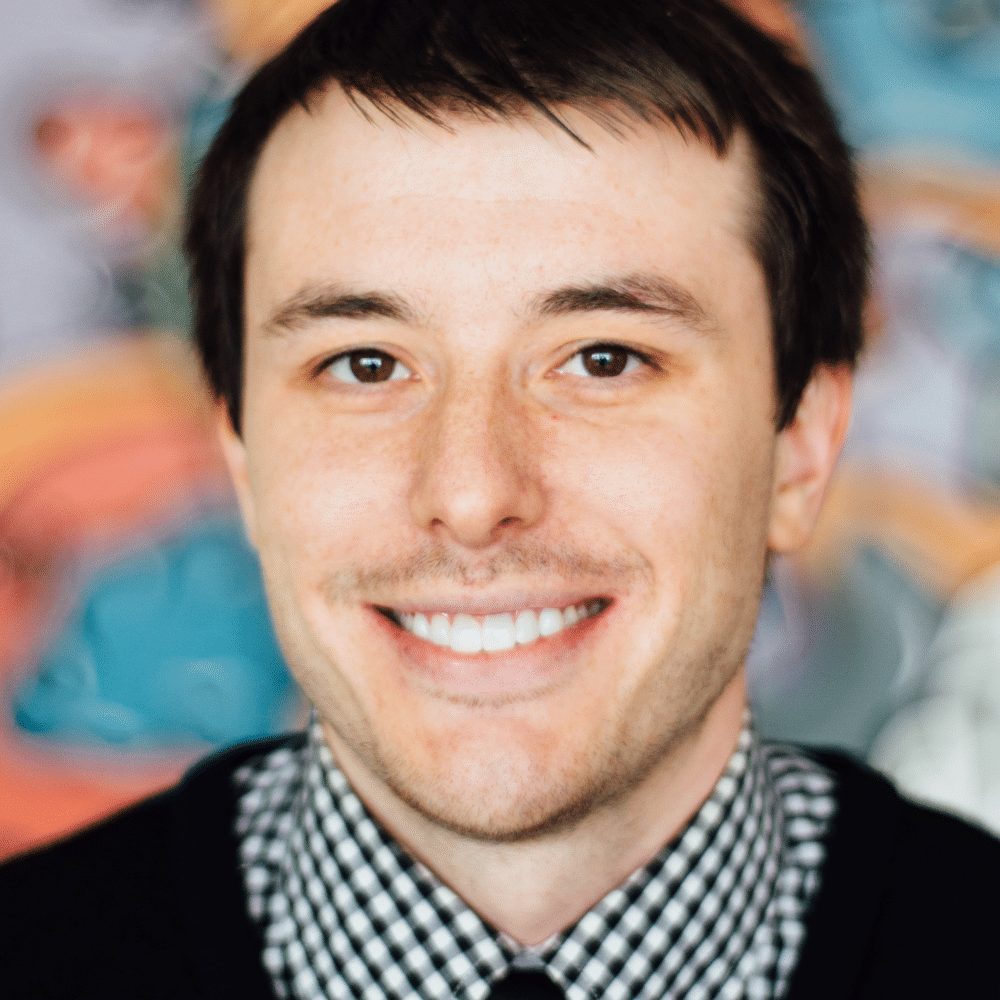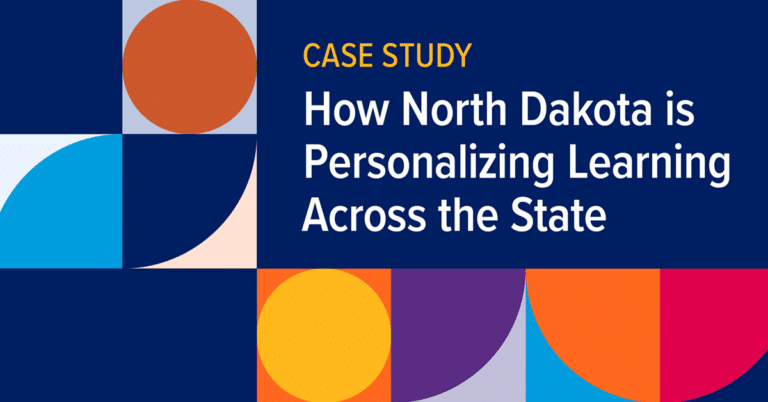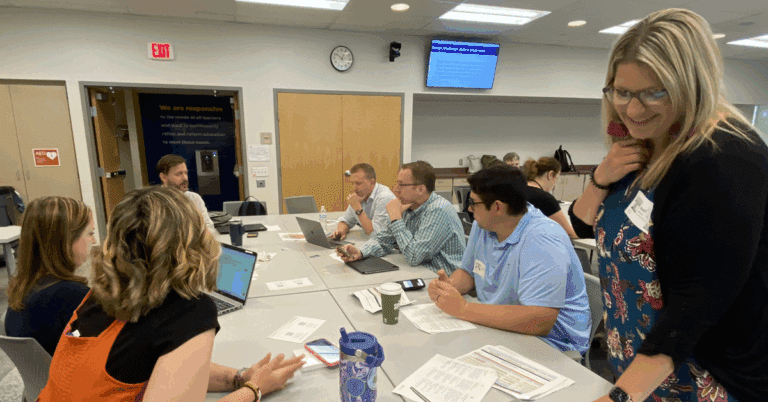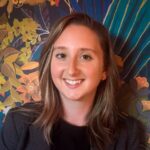When asked why it’s so important to be able to learn from other educators and district leaders implementing personalized, competency-based learning, Shawn Wehrer, chief academic officer with Yuma Union High School District in Arizona, likened it to being a new teacher.
“When you first become a teacher, you go to other teachers to help you and get different ideas. You’re seeing what other people are putting into place that align with what you’re trying to do,” said Wehrer. “Sometimes you like it and use it. Sometimes you don’t. But you can learn a lot from people you aren’t sitting with every day.”
Yuma Union High School District was a founding partner of the Arizona Personalized Learning Network, created in 2019 and facilitated in partnership between KnowledgeWorks and the Center for the Future of Arizona. As they look toward implementing standards-based grading, soliciting insights from a superintendent whose district has been doing it for a lot longer was a huge help.
Enter Dr. Corey Steiner of Northern Cass School District 97 in Hunter, North Dakota. His district made the shift to standards-based grading nearly 10 years ago, and during a professional development day with Yuma Union, he shared what he’s learned.
Among the biggest takeaways for Yuma Union staff:
- Every system, like every learner, is an individual
- See what it looks like, then make it your own
- Move from a top-down approach to a learner-led approach
- Be brave before perfect
For Brenda Neel, a KnowledgeWorks teaching and learning coach who has been working with Yuma Union since 2019, the experience of learning from another district leader was an empowering one.
“I think they felt great validation for the things they’ve done so far, that they’re on the right track,” said Neel. “The work to make learning more student-centered is happening across the country, not just here in Yuma. They’re a part of something much bigger than themselves.”
Networking is about making connections – and transforming education together.
Bringing educators from districts across the country together is a part of the value that KnowledgeWorks brings to the learning communities we partner with. We can connect district leaders who’ve been there before with those who are trying to go there next. And while in-person professional development sessions like the one that Steiner joined are one way to do it, the Lead for Learners network is another. Mike Sharp, director of strategic projects in Yuma Union, and Dr. Steiner originally met through Lead for Learners.
Created with educators in 2021 as Leading Change Professional Learning Community (PLC), Lead for Learners is a free national network just for educators working to create more equitable, personalized learning environments for each student. Bibi Frazine, director of educational technology and LMS at Yuma Union, served in a leadership role for the network as one of the 2023-24 Leading Change Community Fellows.
“It’s such a blessing to be able to reach out to other districts,” said Frazine. “They’ve paved a way to look at the questions we have, the pitfalls, the challenges, the successes. To be able to absorb the lessons they’ve learned and then think about our next steps is so helpful. Sometimes you just don’t know where to start. You don’t know what you don’t know.”

Creating Coalitions To Transform Education
Authentic responses and lived experiences enhance understanding for everyone.
Just as a personalized, competency-based approach to learning requires meeting students where they are, educators, too, need personalization. And while Yuma Union educators can and have been doing this work on their own, bringing in an outside perspective increases their opportunities for understanding the different needs across their six campuses.
Sharp stressed that there’s no right or wrong way to approach the work while they’re learning.
“In order to be better, we have to see what other people are doing,” said Sharp. “If we want to be data-informed, we have to know, what are other sites doing? Are we dealing with the same demographics? And is it working?”
For Neel, this ability to learn and share across state and district lines is truly “the power of a network.”
“If you have a question, you get just in time help and an authentic response from somebody who’s already lived it,” said Neel. “Hearing those kinds of stories makes the work very approachable for districts and district leaders – and helps them to bring their communities along because they can share the perspective of somebody who’s been down the road.”
This was written by former Senior Manager of Communications Jillian Kuhlmann.






